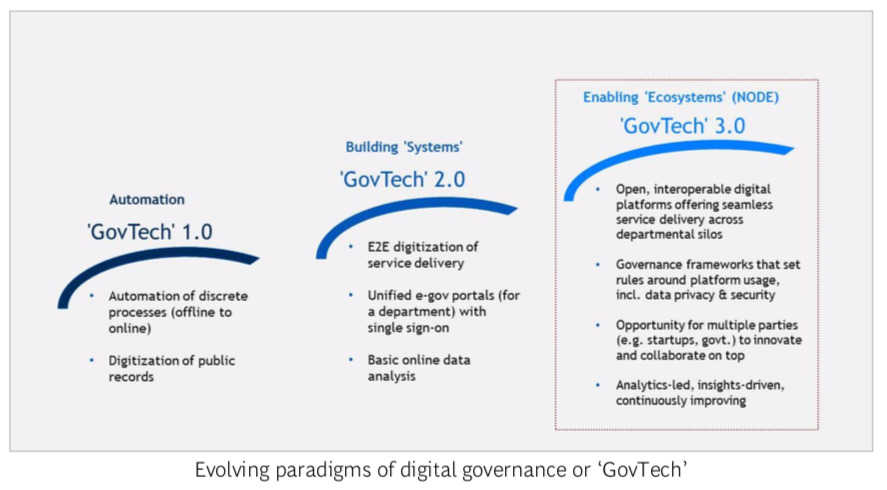Governance
#FOSS4GOV Innovation Challenge
- 26 Apr 2021
- 5 min read
Why in News
Recently, the Ministry of Electronics & IT (MeitY) has announced #FOSS4GOV Innovation Challenge to accelerate adoption of Free and Open Source Software (FOSS) in Government.
Key Points
- Free and Open Source Software (FOSS):
- It doesn’t mean software is free of cost.
- The term “free” indicates that the software does not have constraints on copyrights.
- It means that source code of the software is open for all and anyone is free to use, study and modify the code.
- It allows other people also to contribute to the development and improvement of the software like a community.
- The Free and Open Source Software may also be referred to as Free/Libre Open Source Software (FLOSS) or Free/Open Source Software (F/OSS).
- Examples of FOSS include MySQL, Firefox, Linux, etc.
- Another category of software is ‘Closed Source Software’.
- The software which uses the proprietary and closely guarded code.
- Only the original authors have the authority to access, copy, and alter that software.
- In this case one does not purchase the software, but only pay to use it.
- About the Challenge:
- It will harness the innovation potential of the FOSS community and start-ups to solve critical issues in Government Technologies (GovTech).
- It calls upon FOSS innovators to submit implementable open source product innovations in CRM and ERP with possible applications for Govtech in Health, Education, and Agriculture etc.
- CRM stands for “Customer Relationship Management”.
- ERP stands for "Enterprise Resource Planning" and refers to software and systems used to plan and manage all the core supply chain, manufacturing, services, financial and other processes of an organization.
- It is a key component of GovTech 3.0, which is about building secure and inclusive Open Digital Ecosystems (ODEs).
- The participants are eligible for incubation support, prize money, mentorship by domain experts, institutional support from eminent organizations for incubation of ideas and listing of solutions on Government e Marketplace (GeM).
- Significance:
- India is well positioned to become a vibrant hub for Free and Open Source Software (FOSS) innovations, due to the large number of 4G data subscribers in India.
- 96% of the subscribers access the digital world via open-source based mobile operating systems (primarily Android).
- India’s largest-government projects (including Aadhaar) and many technology start-ups have also been built using FOSS.
- Other Related Initiatives:
- The Government of India had issued a Policy on Adoption of Open Source Software in 2015.
- Free and Open Source Software for Education (FOSSEE) Project: It is a project promoting the use of open source software in educational institutions. It does that through instructional material, such as spoken tutorials, documentation, such as textbook companions, awareness programmes, such as conferences, training workshops, and internships.
- The government has also made the android version of the Aarogya Setu app open source.
GovTech 3.0
- GovTech1.0 was the era of “computerisation” of manual processes such as putting income tax forms online.
- GovTech 2.0 was about building systems which digitised end-to-end processes, for example, the government’s “e-office” file management system.
- GovTech 3.0 is focussed on Open Digital Ecosystems (ODEs), the underlying philosophy suggests that the government should focus on creating the “digital commons”.
- It envisages the government becoming a facilitator by creating digital infrastructure on which innovators can collaboratively build solutions for the public good.
- ODEs are: “open and secure digital platforms that enable a community of actors to unlock transformative solutions for society, based on a robust governance framework”.
- Several path-breaking ODEs are already in play in India: Unified Payments Interface (UPI) in the financial services space; the National Digital Infrastructure for Teachers called DIKSHA; etc.







